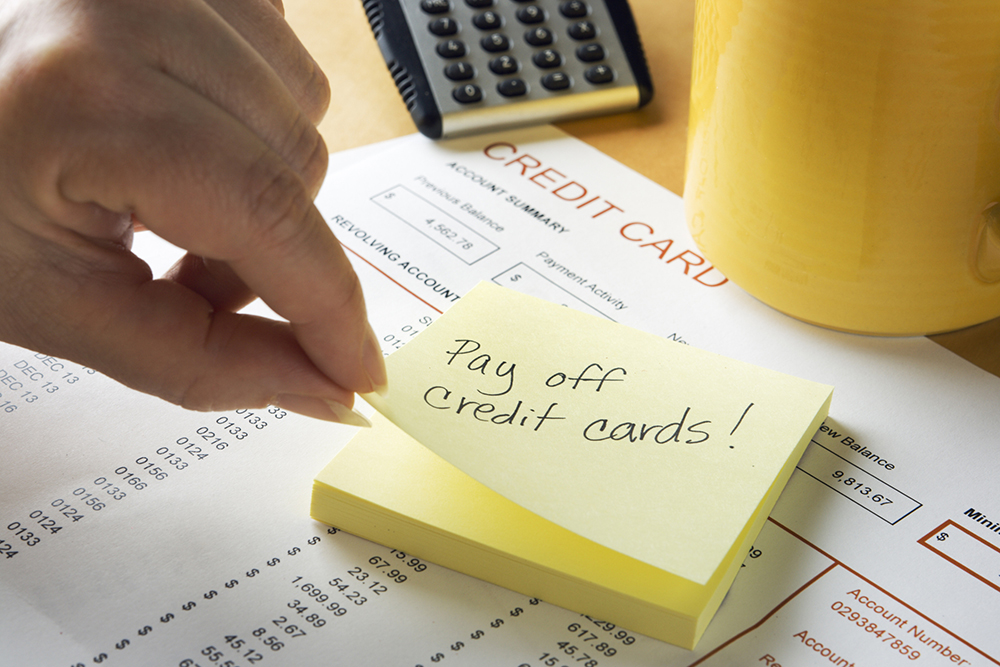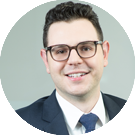Where did all my money go?
Time after time, many people look at their bank accounts and credit card statements and wonder how they do not have enough cash left over at the month-end. At Ciccone McKay, we have a saying: you must treat your household as if you are the personal CFO. It is crucial to take stock of your finances, specifically your cash flow, and understand where every dollar you earn is going. From there, you can better assess your actual financial situation and reach your financial objectives. This is important because the ability to free-up cash flow is critical, whether in normal times or during the extended volatility like we are currently experiencing. While this can be extremely difficult, understanding your cash flow and developing a budget are the first steps in building a balanced financial portfolio.
Building your budget
To better understand cash flow, you need to track the details of your income and expenses and to establish a budget that works for you. The word 'budget' can have a negative connotation for many people. It may feel like a limit or like deprivation. However, this is not true.
A budget is a target. It is what you want to spend in certain areas, with the overall goal of spending less than you earn. If something is important to you, it should be built into your budget. A budget is personal. Establishing a budget- regardless of your income- is a smart move that will keep you on track towards your financial objectives. Furthermore, a well thought out budget helps in seeing the finances of your household from a macro-view.
First, you need the data
First, add all your different income sources (cash inflow)—the money you receive—for example, salary, interest, dividends. Cash inflow could also be the money earned from the sale of an asset such as a car or house. Any money coming into your accounts is considered inflow.
Second add all your total expenses (cash outflow)— the cost of living your day-to-day life, no matter the dollar size, mortgage(s), utility bills, entertainment (clothing, liquor, dinners, activities). Also include the little stuff like parking or monthly subscriptions, as this stuff can add up.
Be realistic. Rather than making estimates, we recommend you review your actual bank account and credit card statements to get real numbers. You may find that what you thought you were spending in a certain area is vastly different than the reality.
You need a macro viewpoint
As mentioned, understanding your cashflow is the entire point of a budget. However, just sitting down and using a single week or a single month's expenses might not paint the most accurate picture of your current expenses or income. It is prudent to track income and expenses over multiple months or even a full calendar year. Over the course of this exercise, you may be shocked to see how much you spend on certain lifestyle items. By giving yourself a broader view of your finances, you will be able to calculate your net cash flow better. It will probably feel odd to look at your life through the lens of income and expenses. Still, it is imperative when establishing a budget.
Now that you’ve collected the data- are you in the black or the red?
The purpose of determining the cash inflows and outflows is to find your net cash flow or net income. Your net income is simply the difference between your total income and total expenses. It is what is leftover. A positive net cash flow means that you earned more than you spent, and you have some money leftover from that period. A negative cash flow means that you spent more money than you earned.
A business would call this net profit or the bottom line—it is the amount that is left over after accounting for all expenses, debts, or operating costs. Because we are all our personal CFO's, treating our households like a business, this simple formula helps the budgeting process as it shows the excess cashflow.
At Ciccone McKay, we stress a better understanding of cash flow to our clients. It helps in paying down debt, building an emergency fund and increasing overall net worth. By understanding the cashflow, you can better plan and allocate funds towards your financial goals. The smallest amount now could make a significant difference in the long run.

Debt… credit card debt is the worst type to owe
An important note, if you have debt of any sort, especially credit card debt, paying that off needs to be the priority. A simple strategy is to pay down debt in order of the percentage of the interest rate; the largest interest rate should be focused on first. Suppose you have multiple credit cards with high-interest rates. In that case, it is typically in your best interest to pay them all off with a line of credit loan, then work towards paying off the line of credit. You will save immensely on interest charges.
Death by a thousand cuts
While a bit overly dramatic, the idiom above can be applied to how most people end up in debt. People generally don't run into financial trouble with big-ticket purchases like a car or a home. These purchases are usually well thought out and planned out over some time. Instead, debt and cash flow problems accumulate based on small to medium-sized repeat purchases that have no general thought behind them. On their own, they are very insignificant (the 'latte factor' which has been widely written on). This is why an in depth look, over a long period of time, will give you a better view of your spending habits to shine light on those smaller purchases that are costing you more money than expected.
In performing this exercise with a client, he was quite dismayed to calculate he was spending nearly $10,000 a year in coffee shops. While this seems impossible, it is just over $25 per day. To him, this money could have been diverted elsewhere for greater long-term benefit.
Living within a budget doesn't mean not living well
Following a budget may feel uncomfortable at first, but once you understand and start following your budget, you will see the major benefits. The purpose of this blog is not to scare you from spending your money or living life; you deserve to spend the money you earn. However, the beauty of a budget is that it is fluid, it changes to meet your current life circumstances, and you can always adjust as needed. There are only positives from becoming more aware of your spending habits, and net cash flow will help you better build a balanced financial portfolio and reach your goals.
Your future self will thank you
The pandemic and the financial impact on many people has reinforced the need to live within your income, not spend more than you earn, and set aside money for emergencies.
Having a strong understanding of your cashflows and following a budget will help you meet your everyday expenses, free up new money and help you stay the course for your long-term financial success.
We would love to chat with you about how we can help you to set and reach your financial goals. As always, please feel free to reach out by phone to 604-688-5262 oremail info@ciccone-mckay.com.

